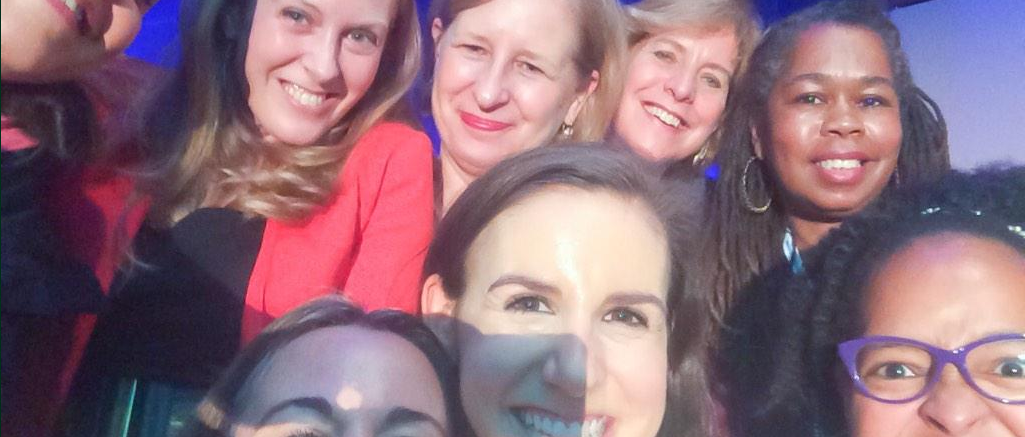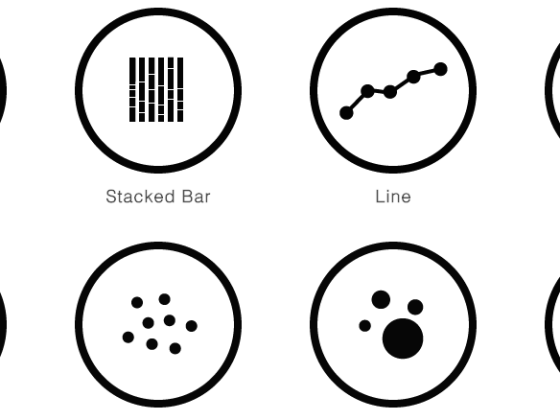Six women at the forefront of innovation in media credited strong mentors – male and female – with their success, and they urged others to help shepherd young women in the business.
“Lady Leaders Lightning Talks” assembled a powerhouse panel at the ONA14 conference on Thursday to discuss women, leadership and news.
Moderator Meredith Artley, ONA’s board president, led the panelists through a fast-paced Q&A on their careers before taking questions from the largely female audience.
And the #ONA14 lady-leader selfie w @MeredithA @AnnaHolmes @AMLwhere @susaneudora @cschweitz @vivian @benetwilson pic.twitter.com/KUMWqUILrN
— Liz Heron (@lheron) September 25, 2014
What made you the leader you are today?
Many panelists emphasized the role of mentors, female and male, both in their own paths to leadership success and in supporting other young women they encounter.
Vivian Schiller, head of news at Twitter, said she benefited from a series of great mentors. Gender hasn’t played much of role, for better or worse, in her career, she said.
Fusion editor Anna Holmes said her first job solidified her leadership style because she learned what not to do. She said she felt demoralized by a boss who didn’t seem to appreciate her enthusiasm for the job.
“I decided then and there if I were ever to be a leader, I would not try to tamp down or stamp out the enthusiasm or the ideas of the people who worked for me,” she said.
Many panelists also advocated creating connections with young women making their way into the industry and guiding them through their careers.
In her first editorial job, Chicago Reporter editor Susan Smith Richardson recalled how an incident with a local politician and a female intern rallied the women in the newsroom to think beyond teaching the basic skills of reporting.
“We needed to not just teach her how to cover a story, but also how do you navigate the discrimination, harassment and the oppression that we write about when you have to experience it directly,” Richardson explained.
What’s the best advice you’ve ever received?
Liz Heron, head of news partnerships at Facebook, advised women to always negotiate. Research shows that men are more likely to negotiate their job offers than women.
Callie Schweitzer, Time’s director of digital innovation, cited a recent New York Times interview with Qualcomm CEO Steve Mollenkopf that encouraged risk-taking. “If I throw the ball away and nobody catches it, it’s going to be OK,” she said. “I can get up and do it again.”
Richardson said her sister, also a journalist, gave her succinct advice: “Expect resistance.” The advice resonated as she began to notice the frequency with which she hit the same obstacles on the job.
Struggles in Leadership
Many women in the digital media field suffer from “impostor syndrome” and need to find ways to overcome it, the panelists said.
“It’s an insidious, infectious disease among women,” said Schiller, “and I see it at every generation, at every age.”
Schiller and other panelists said that they continue to struggle with feelings of inadequacy in their careers in a way most thought men did not. They offered strategies to help combat it.
Benet Wilson, an editor with the Aircraft Owners and Pilots Association, said her own struggle with impostor syndrome abated when others began reaching out to her, specifically, with new jobs and projects. She’s never looked back.
The conversation turned to female leadership and the perception of women as “bossy” instead of “bold.” Ann Marie Lipinski, curator at the Nieman Foundation for Journalism and former editor of the Chicago Tribune, reminded the audience that effective leadership comes in many different forms.
Heron agreed. “I look forward to a time when we have so many women in power that there are going to be all sorts of different ways for women to be, that we can look up to and aspire to,” she said.
Richardson echoed that optimism.
“It’s more than a notion to step into leadership,” Richardson said, “and sometimes we forget to celebrate the fact that we’re in that position in the first place and have the ability to influence and affect people’s lives in great ways.”







1 comment
Very good
Comments are closed.